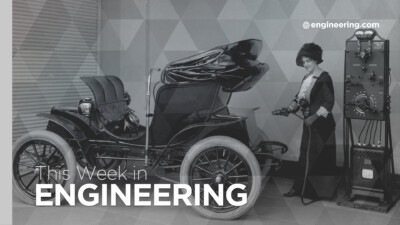One-star ratings from EV owners are much higher than the industry average. Why?
EV’s are the future of motoring. Quiet, smooth, no pollution and no gas. Performance? With both high horsepower and very high torque off idle, we know that electric vehicles are fast and quick. So what’s not to like?
Access all episodes of End of the Line on Engineering TV along with all of our other series.
* * *
Episode Transcript:
It’s great to own an electric vehicle. That’s what every EV owner I’ve ever met tells me. Quiet, smooth, no pollution and no gas. And performance? With both high horsepower and very high torque off idle, we know that electric vehicles are fast and quick. So what’s not to like?
Apparently, whether you like or don’t like your electric vehicle may depend heavily on who you buy it from. Customer satisfaction software company Widewail has released something they call the 2023 Widewail Voice of the Consumer Report, an extensive review of 800,000 Google reviews from 16,000 new car dealerships. And the results are damning.
The new electric vehicle companies, like Tesla and Rivian, use a direct-to-consumer marketing strategy without traditional dealers, which many consumers hailed as an great alternative to the traditional negotiation process.
But the Widewail survey showed that 25% of customers who purchased a car using the direct-to-consumer model left a one-star review. 14% of customers who purchased an EV from a traditional dealer left a single star review, compared to the auto industry average for dealerships for one-star reviews of 7%. There is something about buying an EV that creates much higher levels of consumer dissatisfaction compared to internal combustion engine vehicles. Does this mean that EVs are lousy?
Interestingly, it doesn’t. According to the survey, the leading indicator of a positive review is a good experience with dealership staff. 80% of the survey respondents mentioned a staff related issue. The survey also noted that sticker shock for EV vehicle repairs is a factor, with EV battery pack replacements frequently costing more than $5000. And it’s not the magnitude of the service cost which respondents identified, but the lack of transparency over these costs. Poor communication from the service department was identified by over one third of survey respondents.
For automotive engineers, this is a classic problem. A well-engineered, high performance and reliable product can fail because of a terrible dealership experience. And it’s not a new phenomenon. American sales of French, Italian and British cars were hobbled for decades by a weak and indifferent dealer network. By contrast, Volkswagen went in the other direction, and sales show the results. So what can EV makers with direct-to-consumer sales do about this problem?
The obvious solution is to improve customer service, but there is another, more engineering focused solution: move the problem into the vehicle itself. We already have considerable AI capability built into telephone-based customer service software, but maybe the future involves the customer talking to the car itself. Let it diagnose the problem, call the dealership and determine possible service appointments, then present the owner with a problem, a solution, certainty about the cost of the solution, and a range of options for the service call.
Obviously, as self-driving technology improves, the logical next step is for the vehicle to drive itself to the service centre, where the work can be performed overnight, then return to your driveway for the morning commute. This may sound like Star Wars, but it’s already very close with current technology. But the key results of the Widewail survey should be a warning to every tech startup lying to revolutionize any consumer goods market: Star Wars may get them into the showroom, and it may get them to sign, but after the thrill wears off, maintaining a customer relationship is the hard part.
But if you can’t do it face-to-face, automotive engineers need to make the car itself the brand ambassador.



